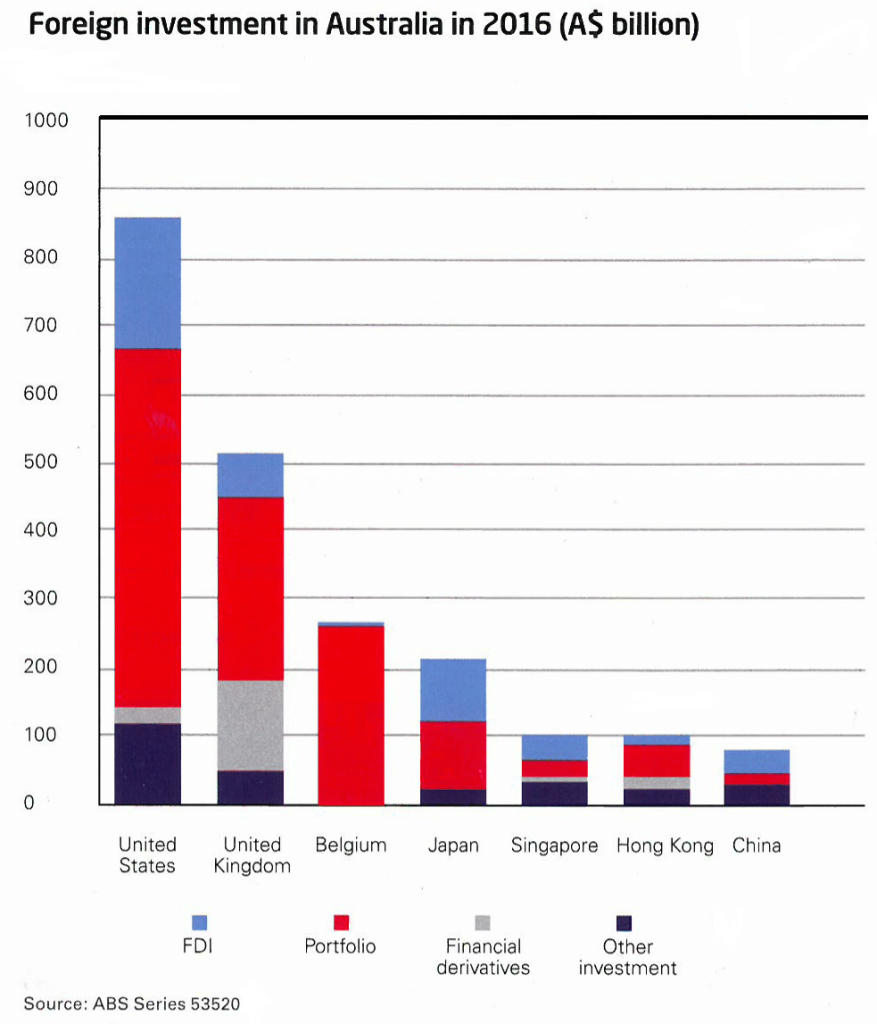The Indispensable Economic Partnership: US Investment in Australia
Tuesday 22 August 2017
Article by Naomi Garcia
“Major Australian firms… see the United States not just as a market responsible for more than half of their global revenues, but as a springboard to the world.” ~ The United States Studies Centre at the University of Sydney
On Wednesday July 16, AmCham and the United States Studies Centre at the University of Sydney (USSC) held the Melbourne launch of our brand new study , “Indispensable Economic Partners: The US-Australia Investment Relationship,” a joint publication by the USSC and the American Chamber of Commerce in Australia. The two authors of the study, Professor Richard Holden and Jared Mondschein, introduced the findings of their past seven months of in-depth research.
The team began by emphasising the strategic – and vastly underappreciated – importance of the bilateral economic partnership between the United States and Australia. While many Australians are aware that China is Australia’s leading trade partner, the broad implications of foreign direct investment in Australia are overlooked in recent rhetoric. In reality, as the study goes on to demonstrate, American investment into Australia is responsible for the existence of more than 335,000 jobs in Australia with an average annual salary of more than AU$115,000. In addition, U.S. capital flow into Australia on average totals more than AU$10 billion annually; research and development spending in Australia by U.S. affiliated companies averages more than AU$1 billion per year. In total, the United States is the single largest investor in the Australian market by a large majority , accounting for more than 26% of all foreign investment in Australia. The figure included below depicts foreign investment into Australia by country in billions of Australian dollars, showing the U.S. total of AU$860 billion in investment in 2016 – 66% more than the second highest country’s gross investment into Australia for the same year.

American investment into Australia not only boosts the Australian economy and brings a wealth of jobs into the Australian market; the role of U.S. corporations in Australia also provides consumers with more choices and purchasing power, contributes significantly to efficiency in business management techniques, and promotes Australian advances in research and technology. According to the study, “From the capital for infrastructure programs to major levels of investment for superannuation funds, US capital markets affect practically all Australians.”
In addition to the raw data, researchers published 13 case studies of businesses with strong ties to both the United States and Australia. ten of these case studies focused on exploring the benefits of foreign investment into Australia; these ten businesses were Amazon Web Services, Amgen, Bechtel, Boeing, Cisco, Citi, Costco, ExxonMobil, GM Holden, and Google. Studies showed that the quality of life in Australia – what the study termed the ‘lifestyle dividend’ – including access to health care, education, safe low-crime areas, and a good system of governance, contributed greatly to American business’ desires to set up in Australia.
The researchers also studied Austal, Lendlease, and Incitec Pivot, Australian companies with significant outbound investment in the United States. The report indicates that the lower cost of labour and the massive size of the U.S. market are the largest incentives for Australian companies to expand to the United States. In 2016 alone, Australian-owned companies located in the U.S. made US$60.6 billion in sales within the American market, more than six times the amount Australian companies made in exports to the U.S. in the same year (US$9.5 billion). In total, Australian investment into the United States makes up more outbound Australian investment than to any other country, accounting for 28% of Australia’s outbound foreign investment and totalling AU$617 billion in 2016. The mutual economic benefits of bilateral investment are far-reaching, and it is because of these significant incentives that “major Australian firms, ranging from biotechnology giants like ResMed to property giants like Westfield Corporation, see the United States not just as a market responsible for more than half of their global revenues, but as a springboard to the world.”
The detailed report emphasises both the strategic economic importance of the bilateral relationship between Australia and the U.S., as well as the cultural ties that make this partnership both a current reality and a secure path for future growth. According to the study, “secure property rights and procedural fairness – backed by the rule of law and democratic political institutions in both countries” support the rich economic and political history of collaboration between Australia and the United States. With Australia as the recipient of more U.S. investment than any other country in the Asia-Pacific region, this mutually beneficial economic partnership is only expected to grow in the coming decades.
Amidst conversations centred on net domestic exports and political alliances, it is imperative not to understate the strong mutually beneficial role of foreign direct investment between the United States and Australia. As the two countries’ economies continue to thrive, new opportunities for growth continue to present themselves, backed by the enduring American-Australian economic partnership.
Naomi Garcia recently completed an internship at AmCham in Melbourne.